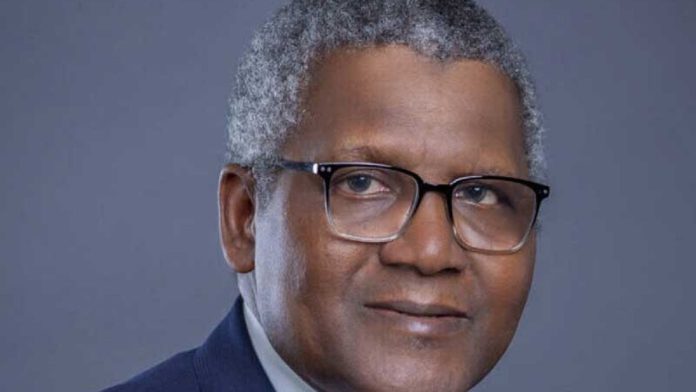Aliko Dangote’s fortune has surged to $23.9 billion, making him Africa’s wealthiest individual and placing him 86th on the global billionaires’ list, according to Forbes. This marks a significant jump from his 2024 ranking as the 144th richest person with a net worth of $13.4 billion.
Dangote’s rising net worth is primarily driven by his 92.3% ownership of Dangote Petroleum Refinery & Petrochemicals. At 67 years old, he returns to the world’s top 100 richest individuals for the first time since 2018.
His position places him ahead of South African businessman Johann Rupert, who ranks 161st with an estimated fortune of $14.4 billion. He also remains Nigeria’s richest man, far surpassing Mike Adenuga, who is ranked 481st globally with a net worth of $6.8 billion.
The Impact of Dangote Refinery
Dangote reshapes Nigeria’s oil sector by ending the government’s long-standing monopoly with the establishment of Africa’s largest petroleum refinery. The project, which took 11 years and cost $23 billion, officially begins operations in 2024.
Spanning 6,200 acres in the Lekki Free Zone, the refinery has a processing capacity of 650,000 barrels of crude oil per day, making it the largest in Africa and the seventh-largest globally.
Alongside the refinery, Dangote’s petrochemical complex produces 3 million metric tons of urea annually, positioning it as Africa’s largest fertilizer producer. The refinery’s operations are already disrupting global energy markets, as Nigerian petroleum imports drop to their lowest level in eight years. European refiners, which traditionally supplied fuel to Nigeria, are experiencing reduced demand, according to energy research firm Vortexa.
Additionally, Nigeria has transitioned into a net exporter of jet fuel, naphtha, and fuel oil, as reported by S&P Global.
Dangote sees the refinery as a major step toward transforming Nigeria, a leading crude oil producer, into a major supplier of refined petroleum products. He aims to position Nigeria as a competitor to European refineries while ensuring a stable fuel supply for the local market.
“I want to create a blueprint for industrialization across Africa,” he tells Forbes. “We must build our own nations and develop our continent ourselves instead of depending on foreign investment.”
He criticizes Africa’s heavy reliance on imported finished products, saying his refinery marks a turning point in the continent’s ability to refine its own crude oil, create jobs, and drive economic growth.
Dangote acknowledges that launching the refinery project is the most significant risk of his career.
“It is the biggest gamble of my life,” he admits. “If this project had failed, it would have been a disaster for me.”
Public Perception and Recognition
Zainab Usman, director of the Africa Programme at the Carnegie Endowment for International Peace, describes Dangote as a key figure in Nigeria’s industrial transformation.
“In many parts of Nigeria, he is seen as a hero—an industrialist who builds and reshapes the economy,” she says.
Chika Ezeanya, a professor of African studies at Soka University of America, agrees, highlighting Dangote’s role in meeting consumer needs across the continent.
“He strongly believes Nigerians need the products he provides,” Ezeanya says. “Governments may change, and policies may shift, but the needs of Nigerian consumers will only continue to grow.”
Dangote’s refinery solidifies his position as a driving force behind Africa’s economic future.










